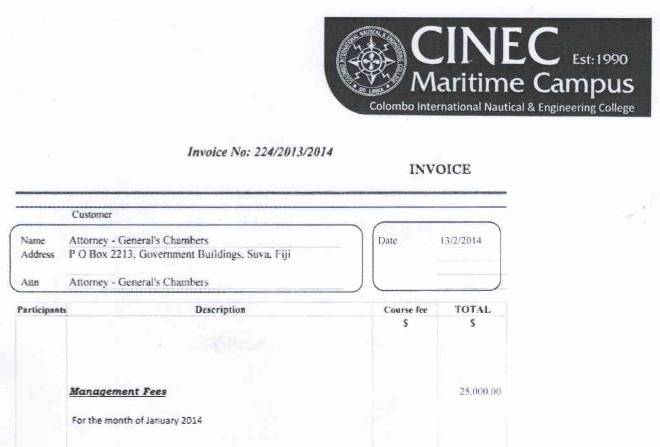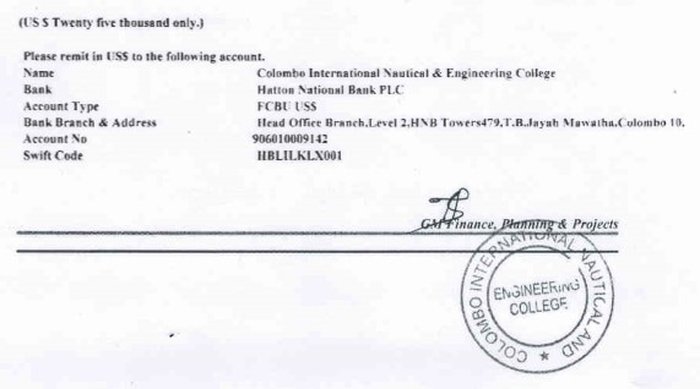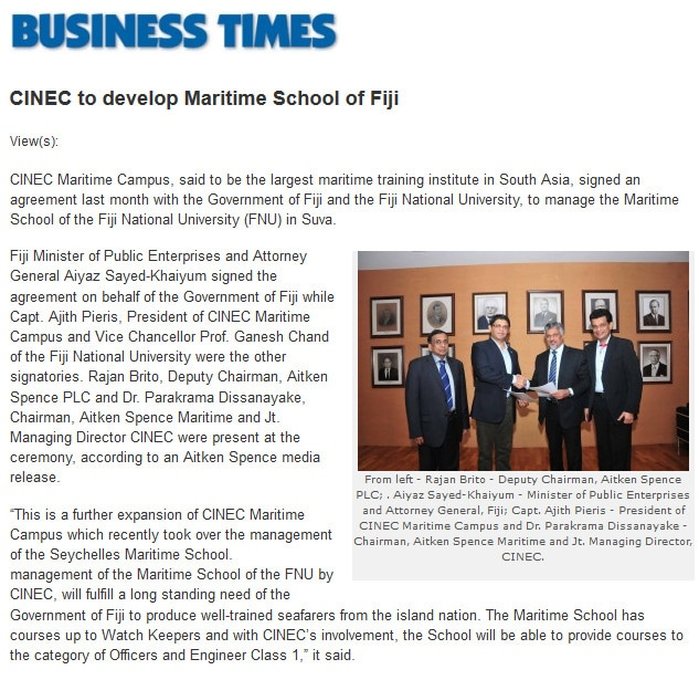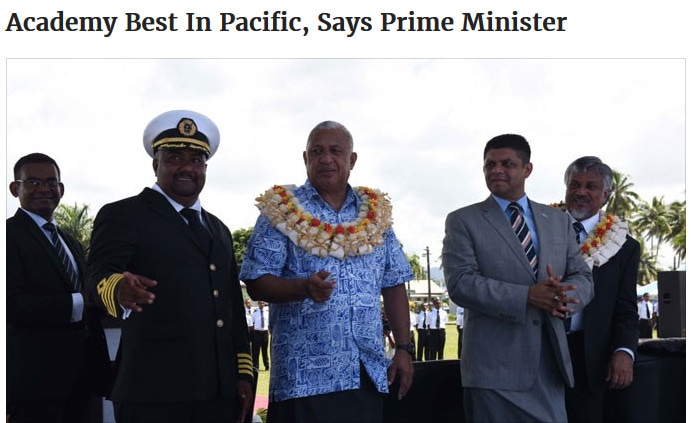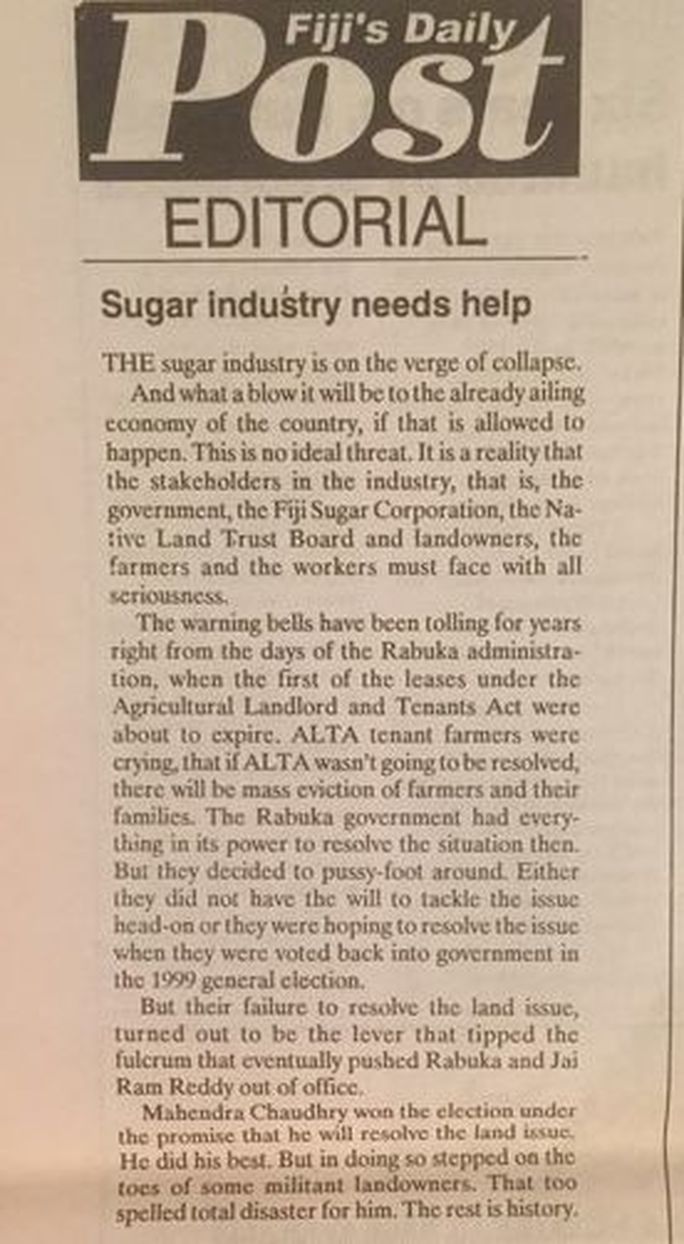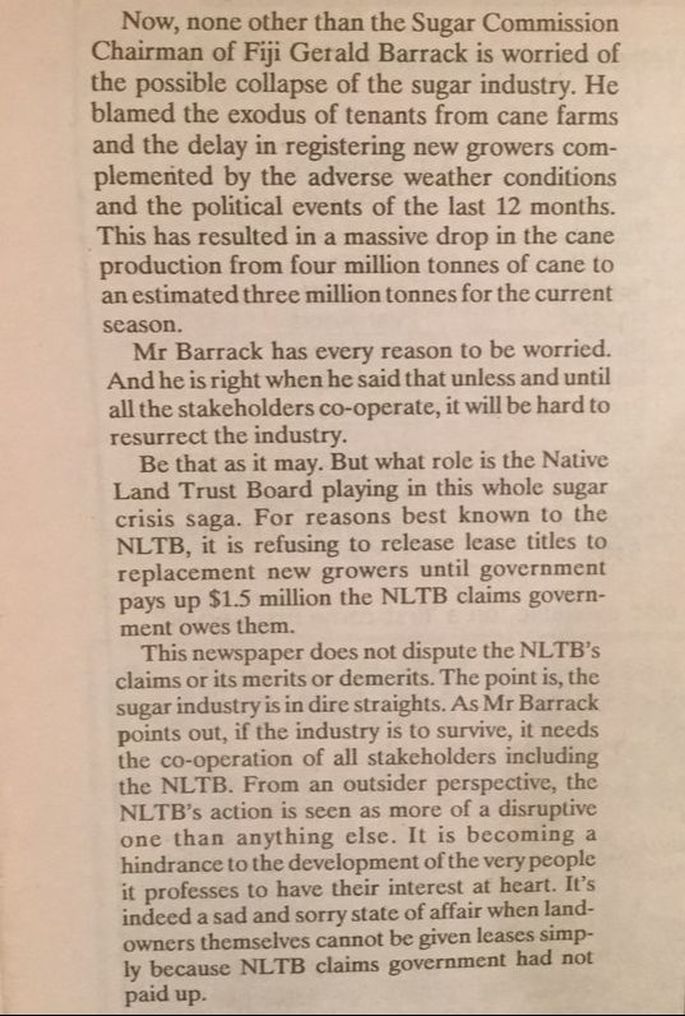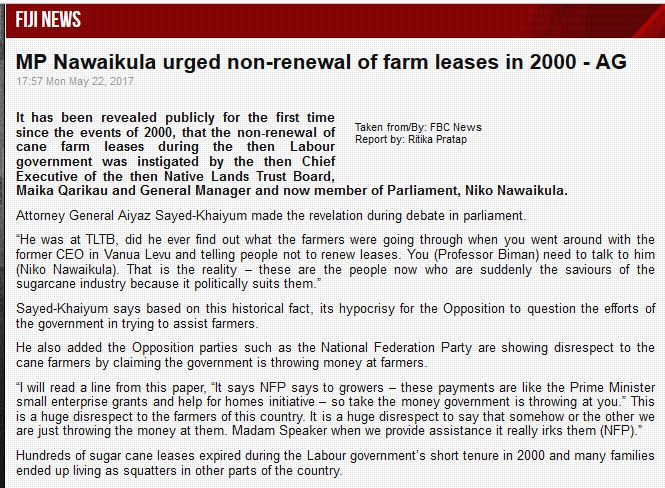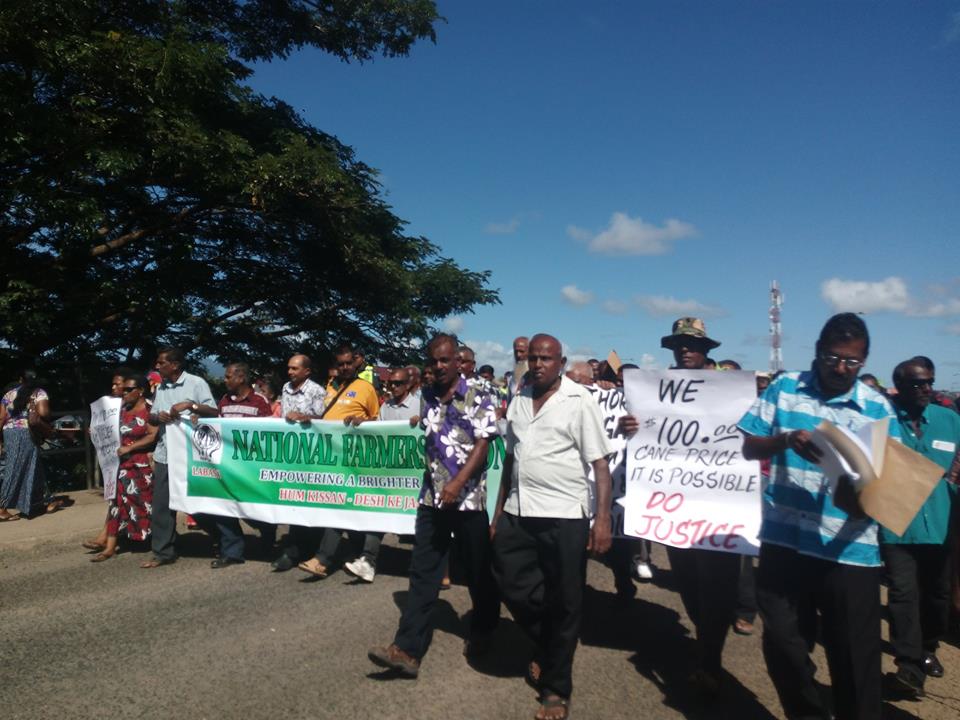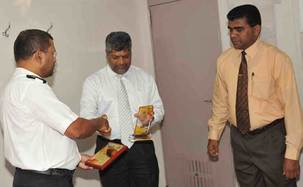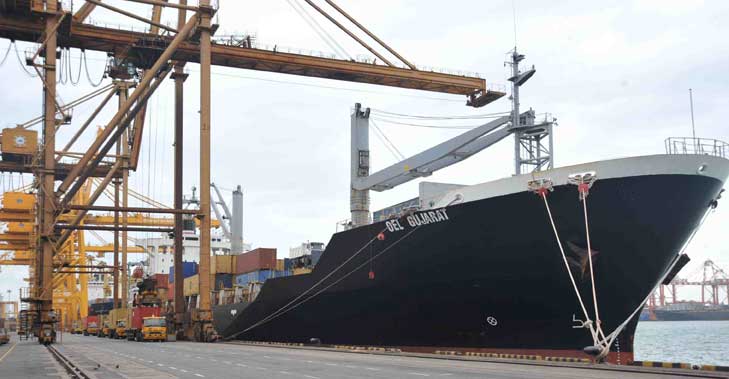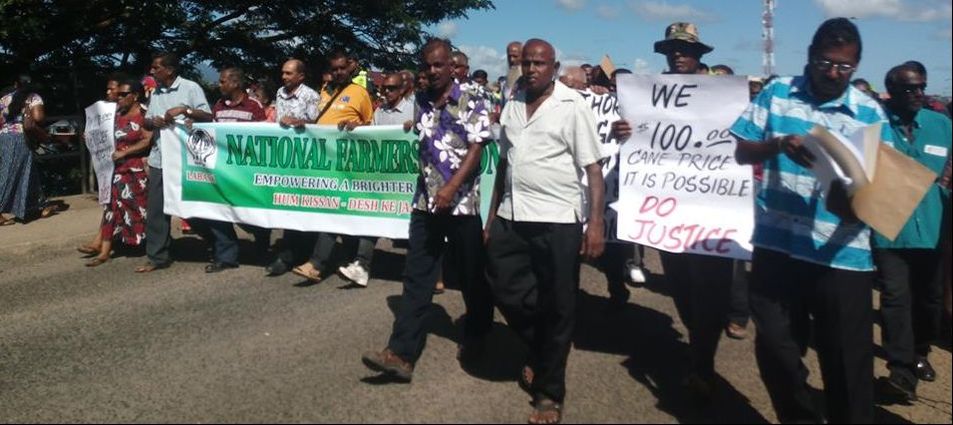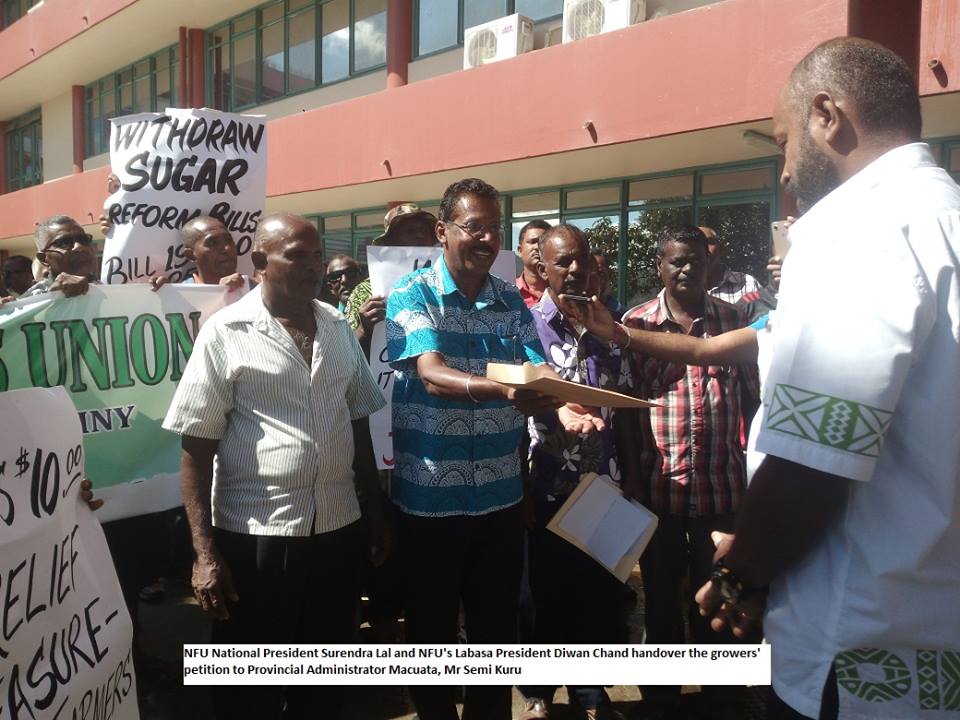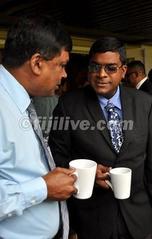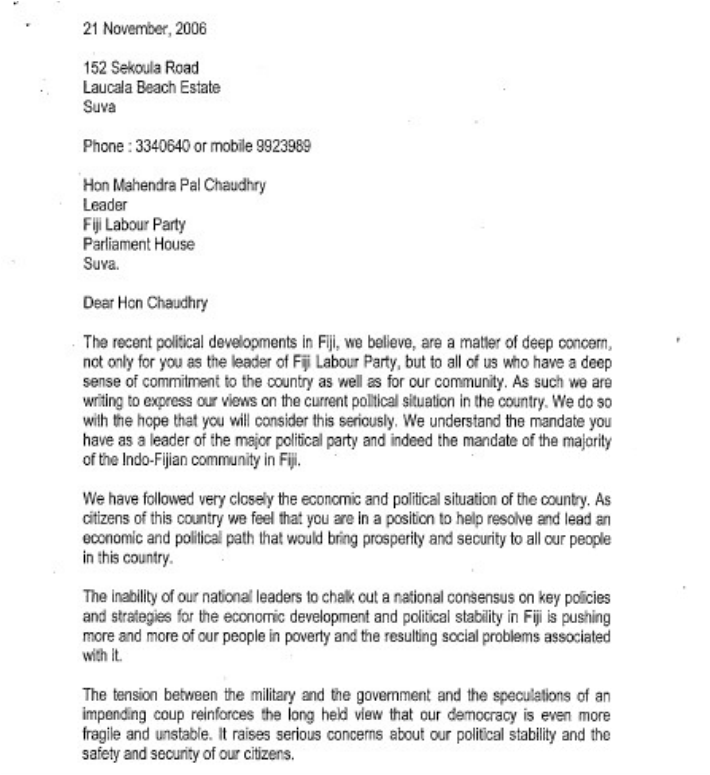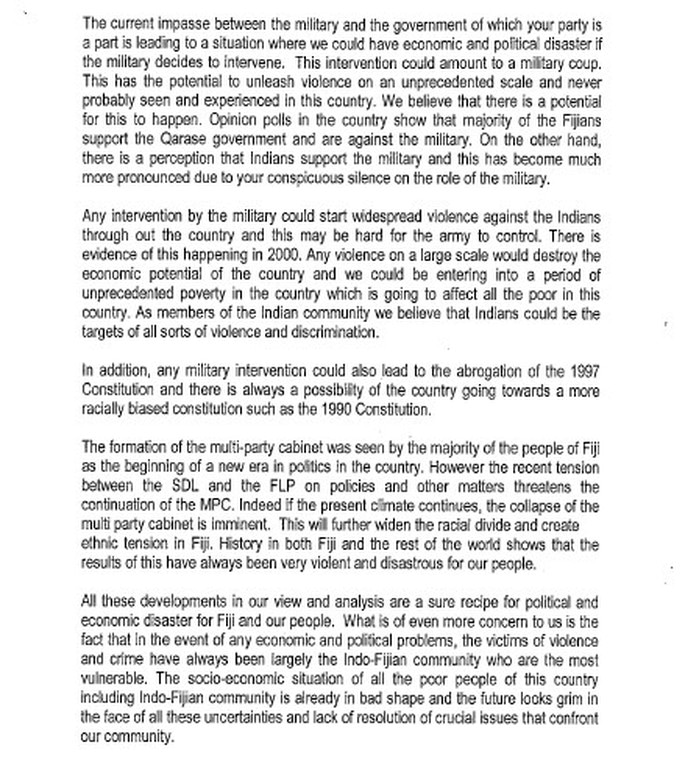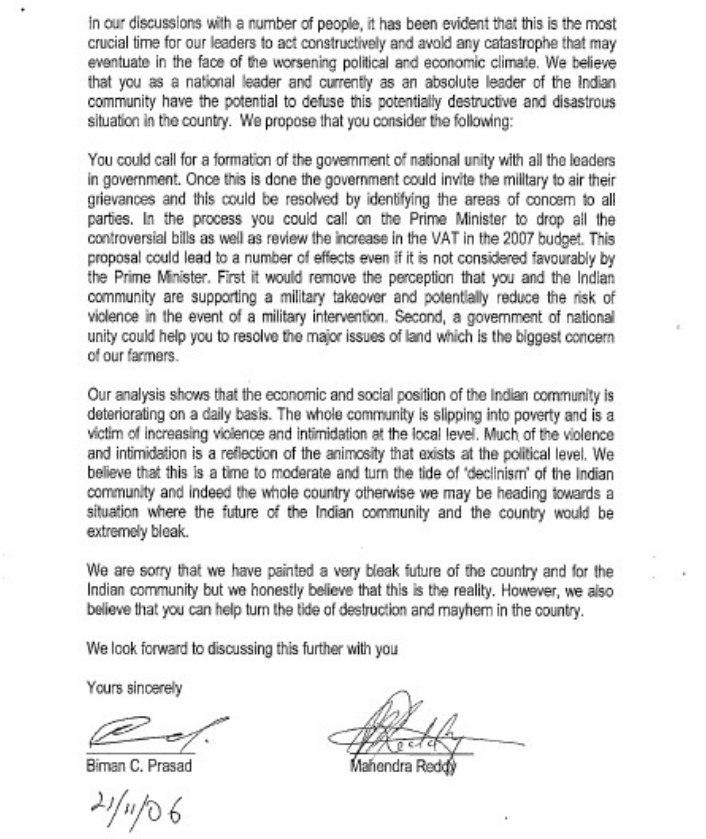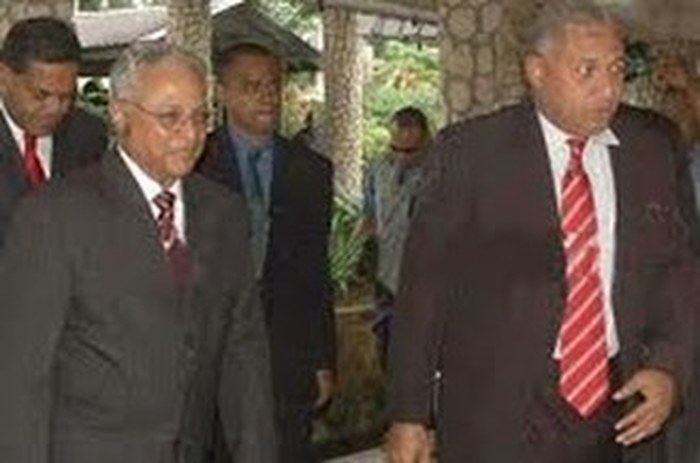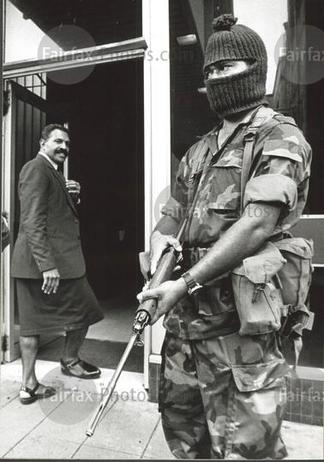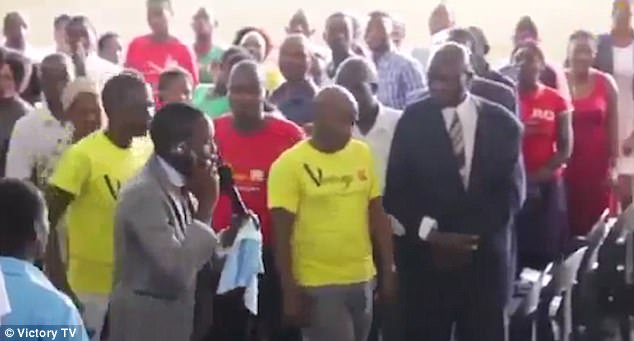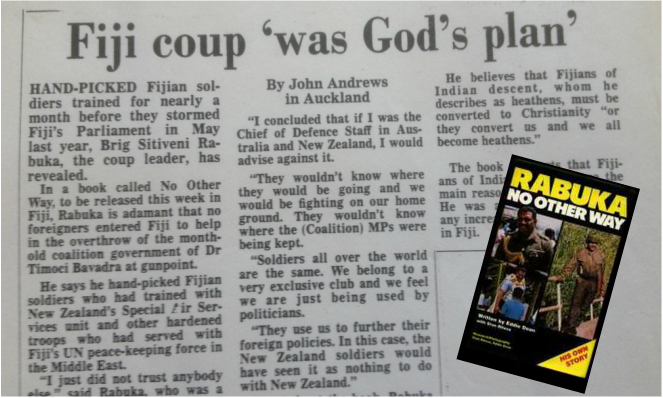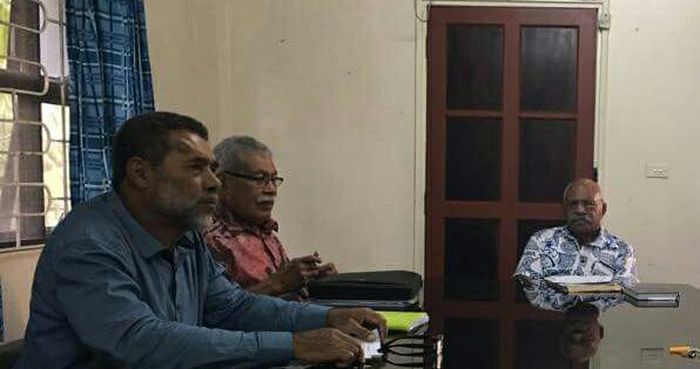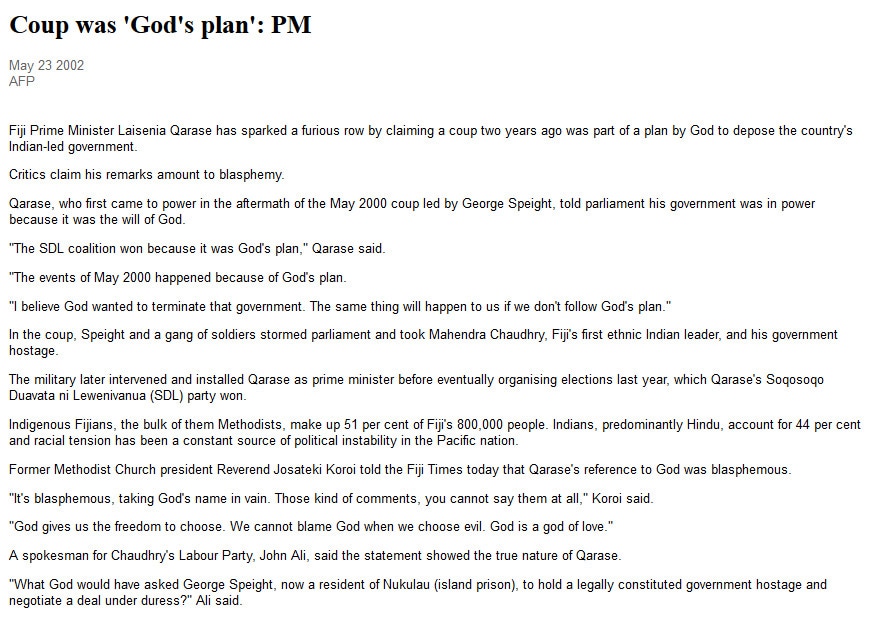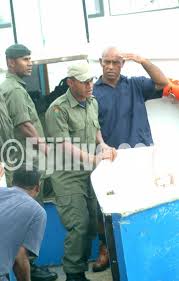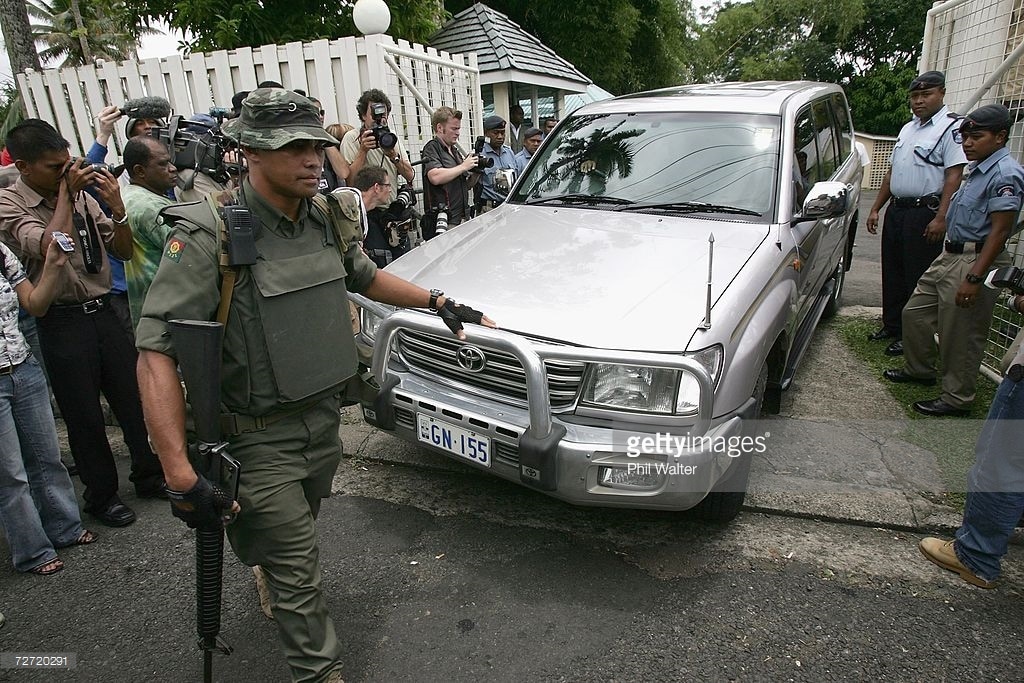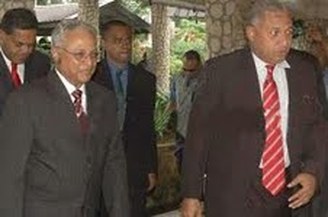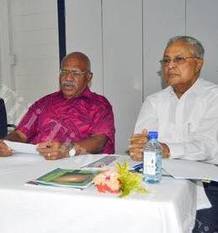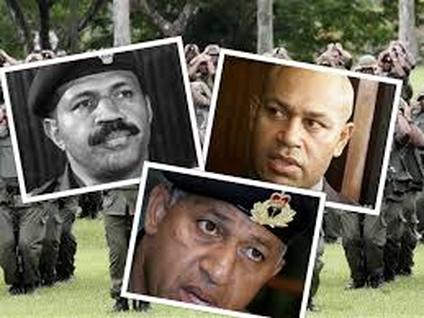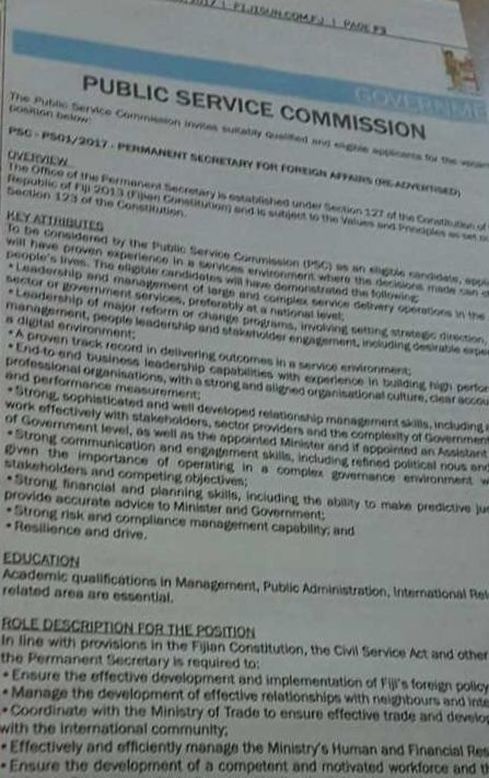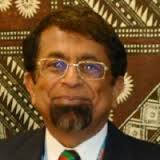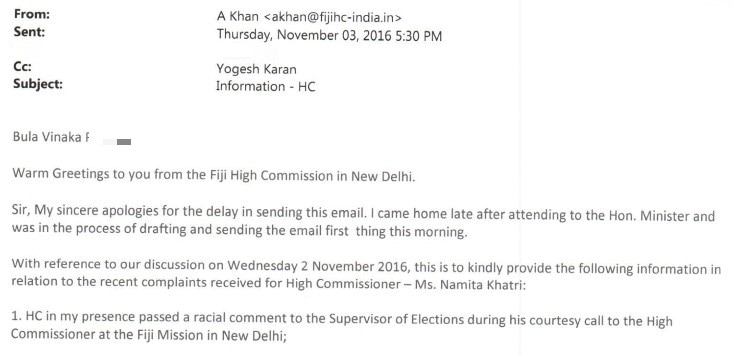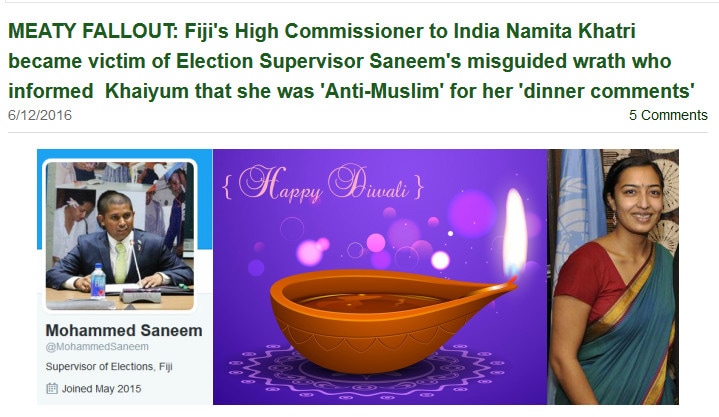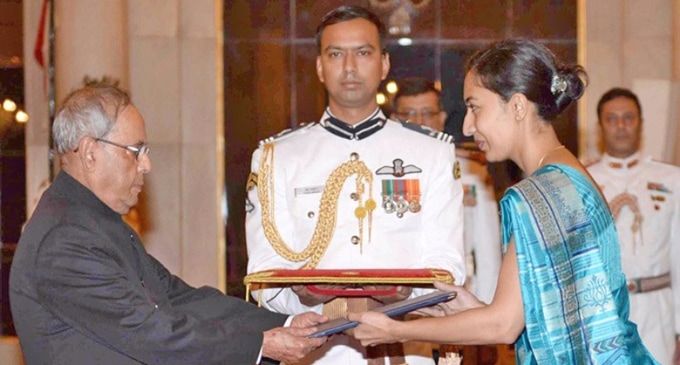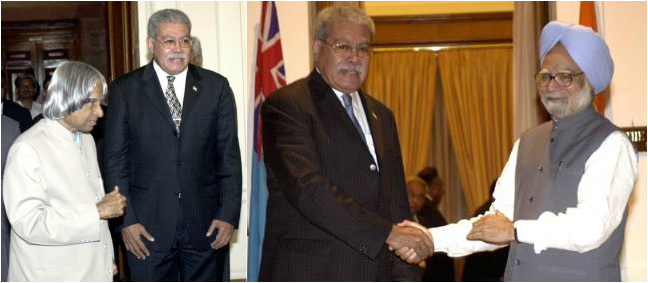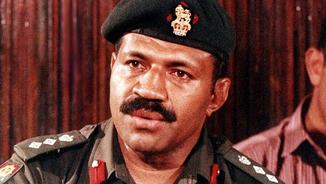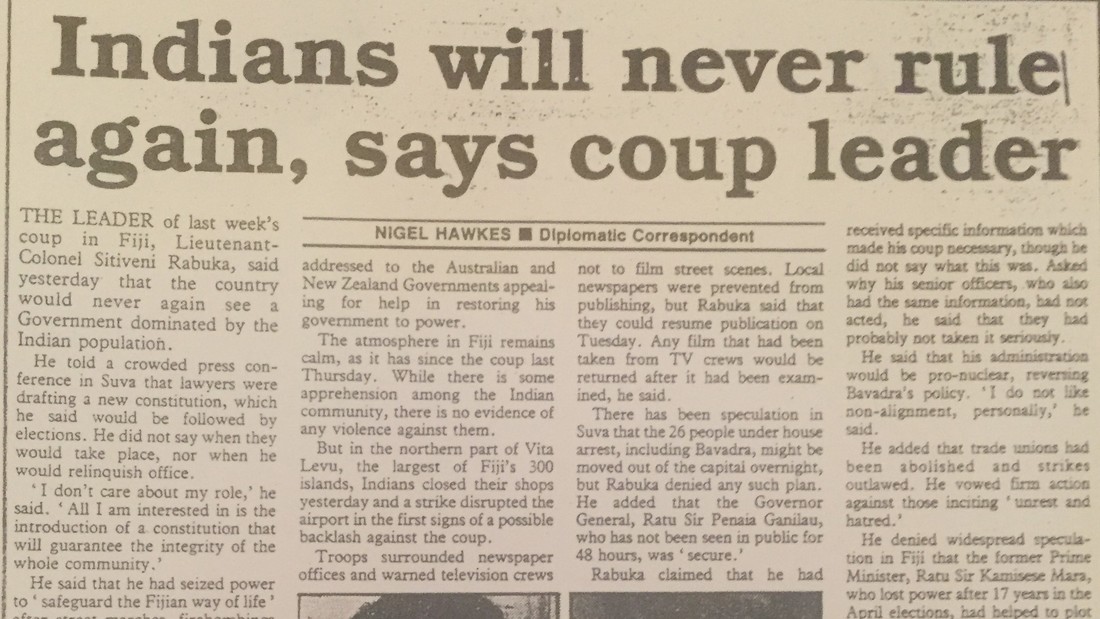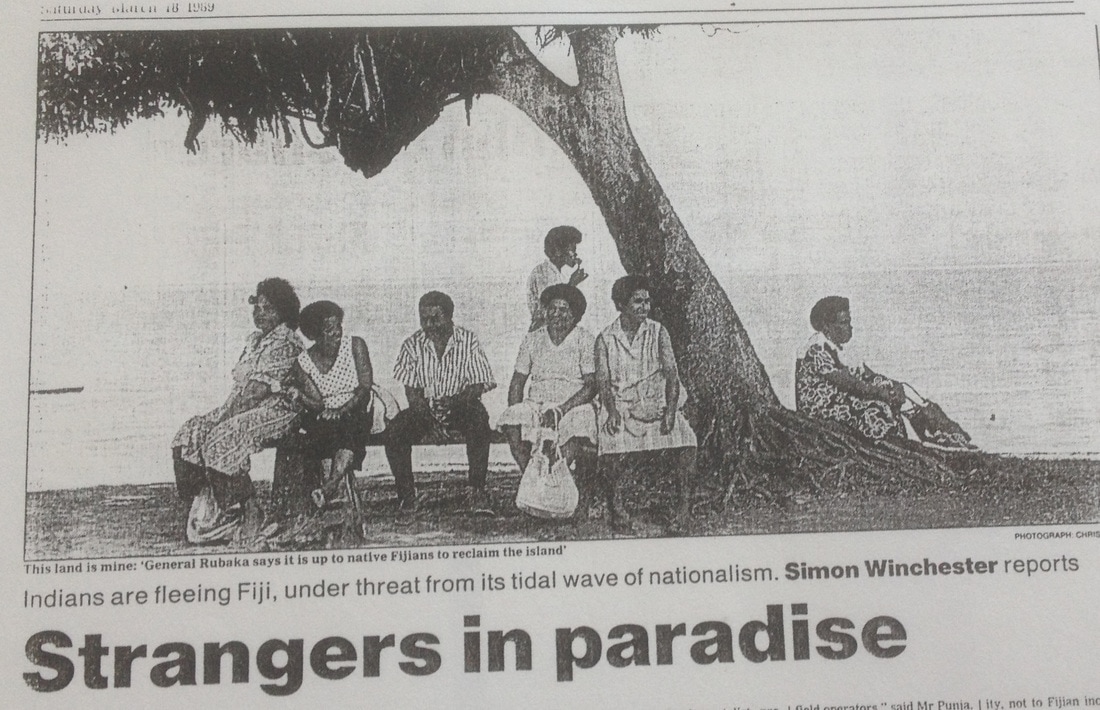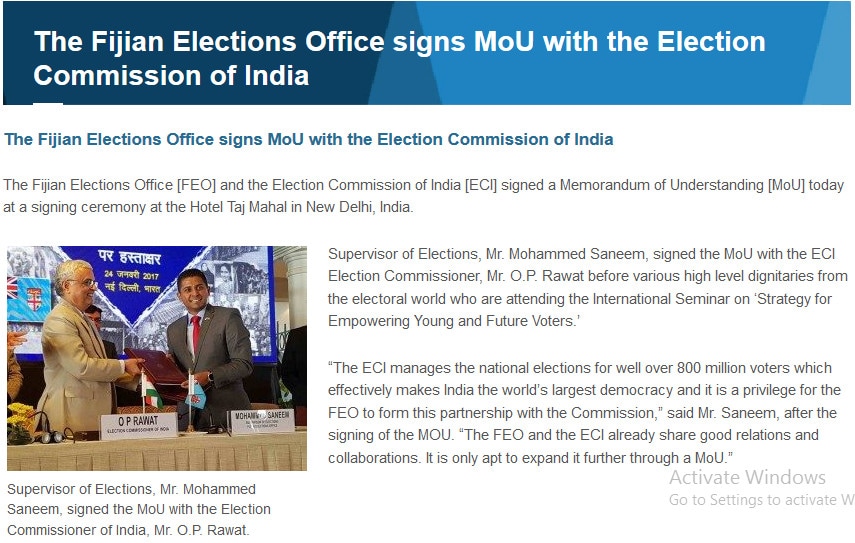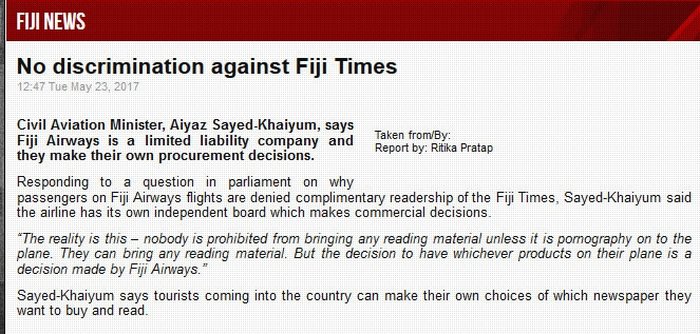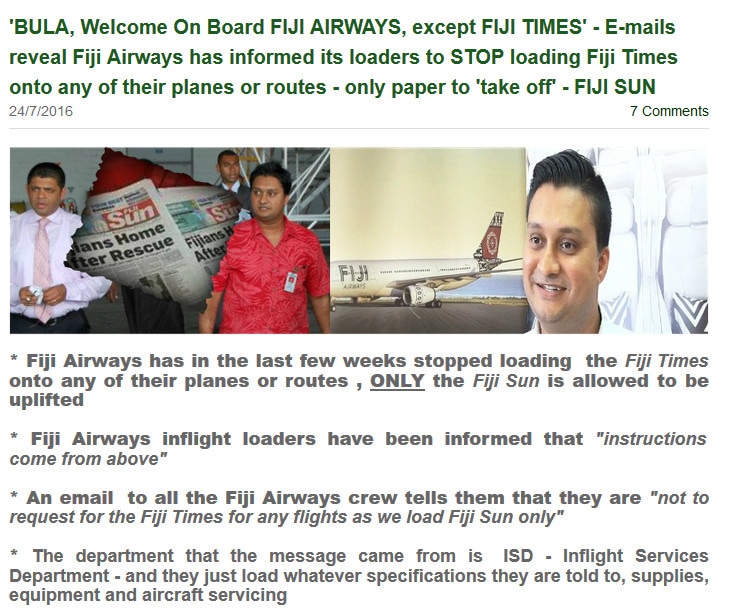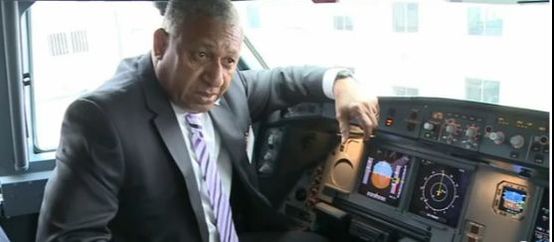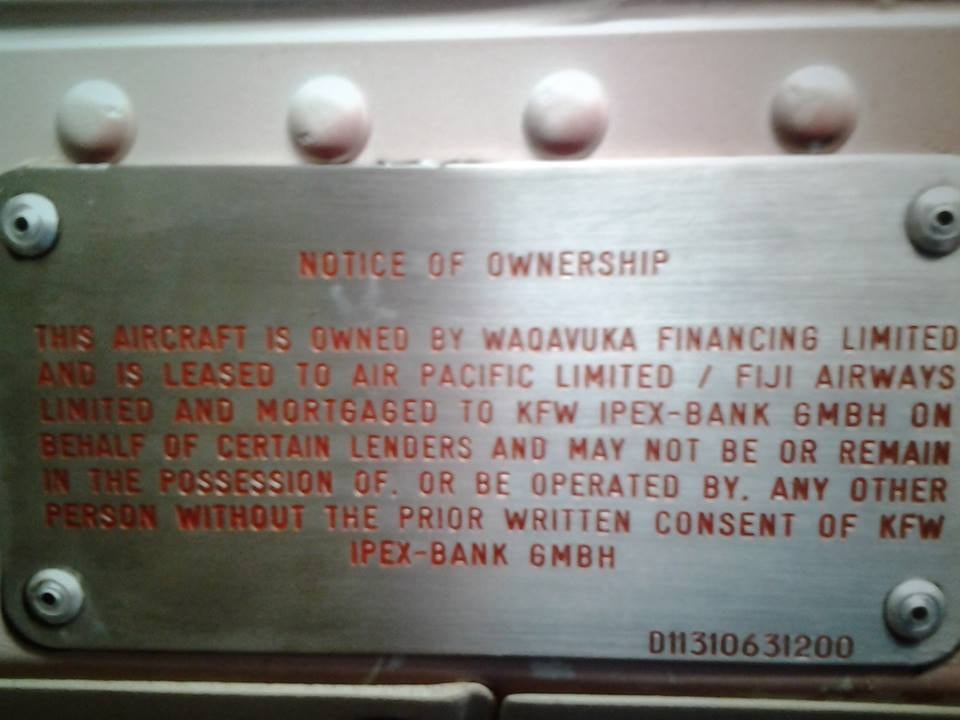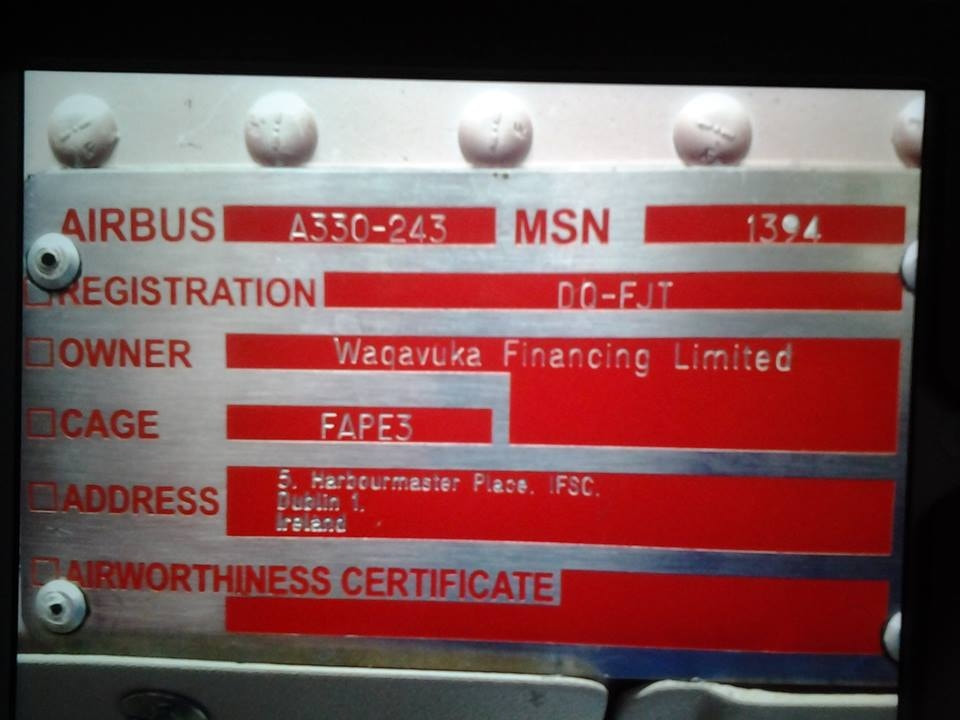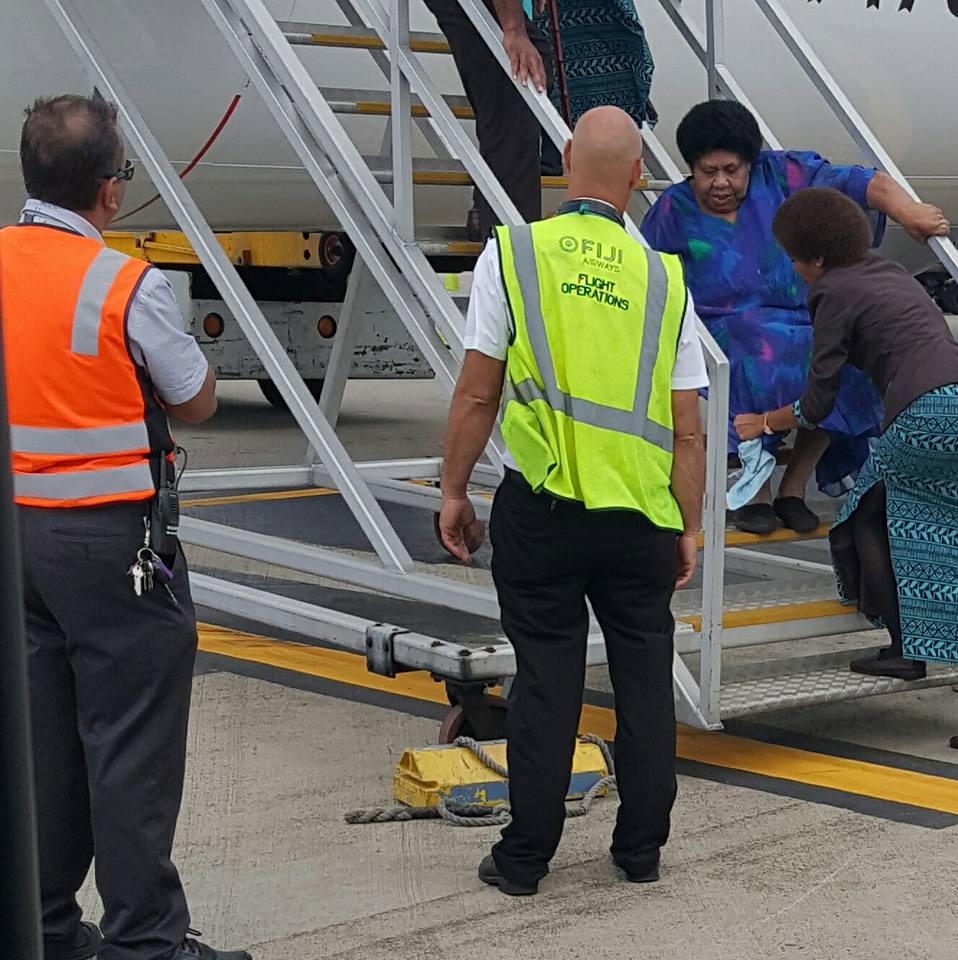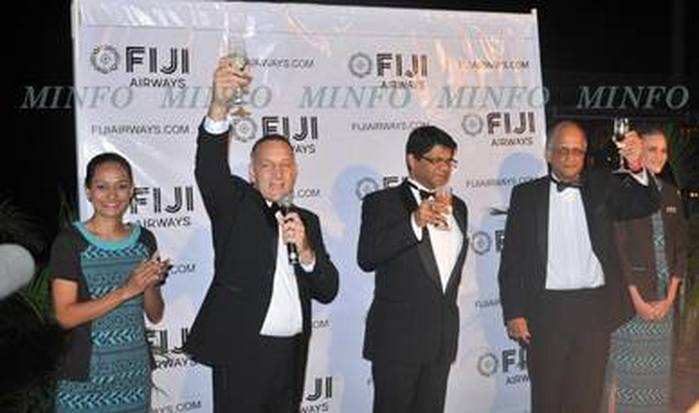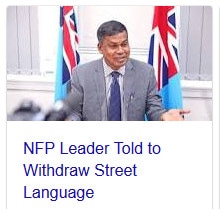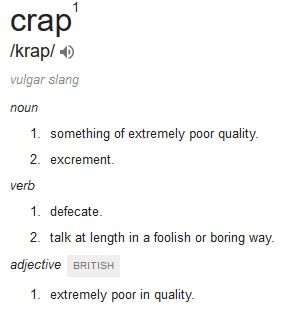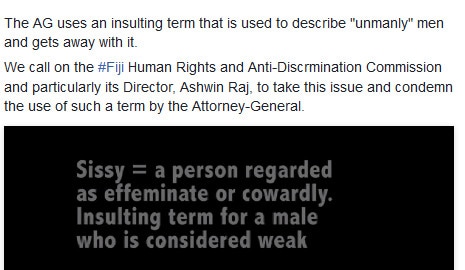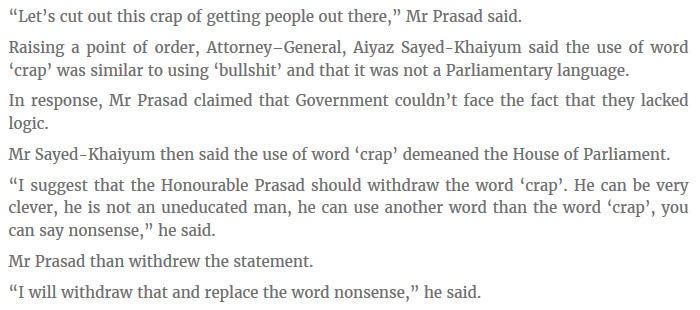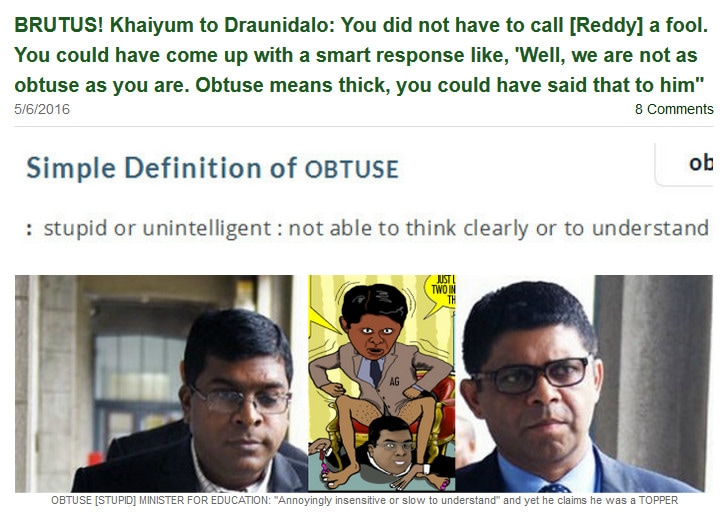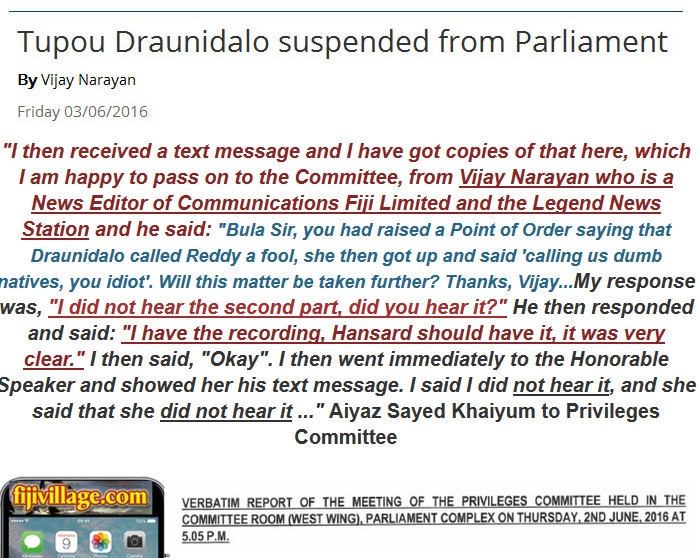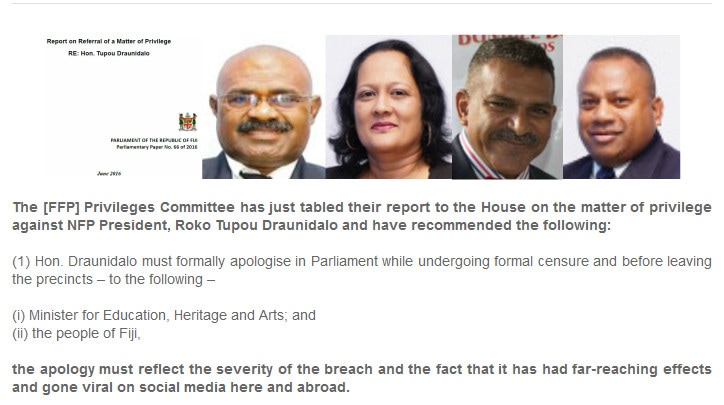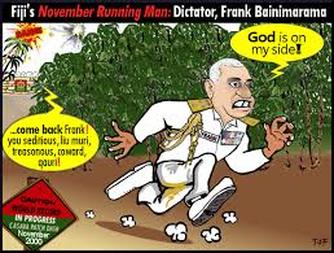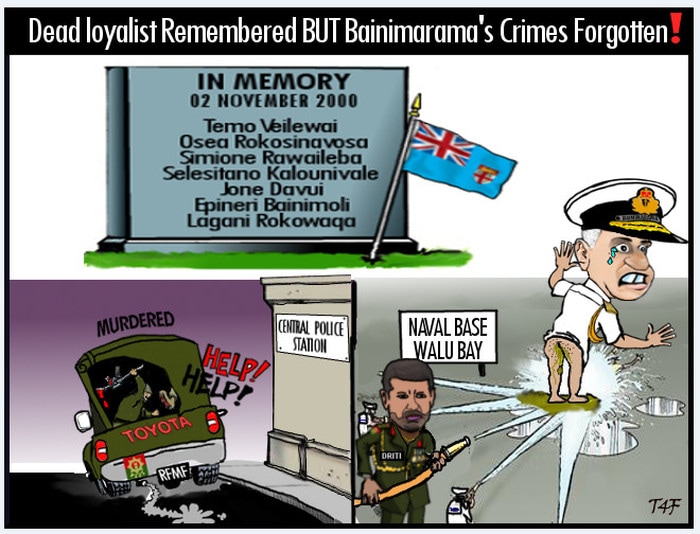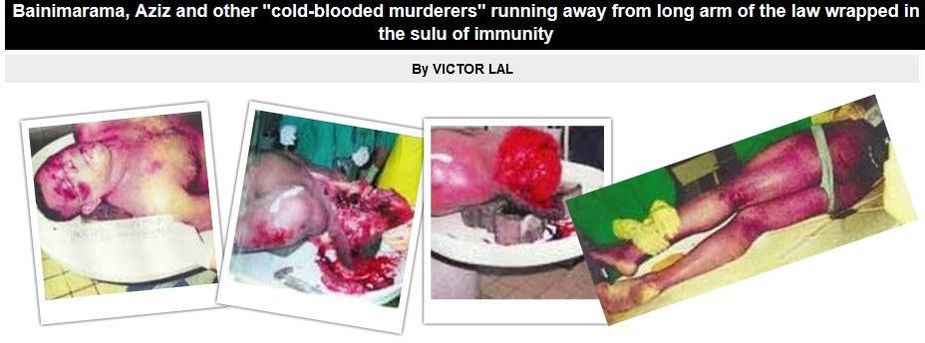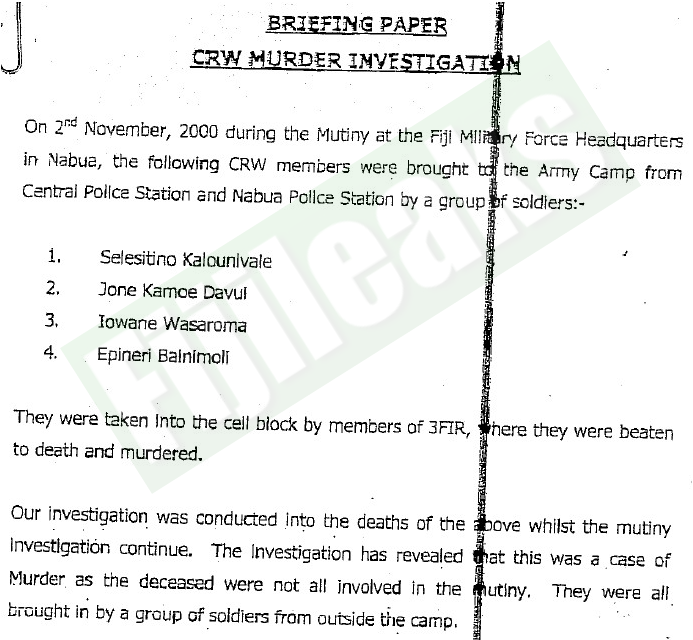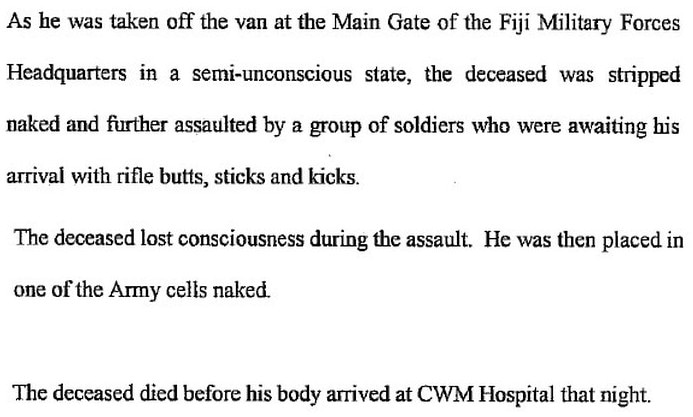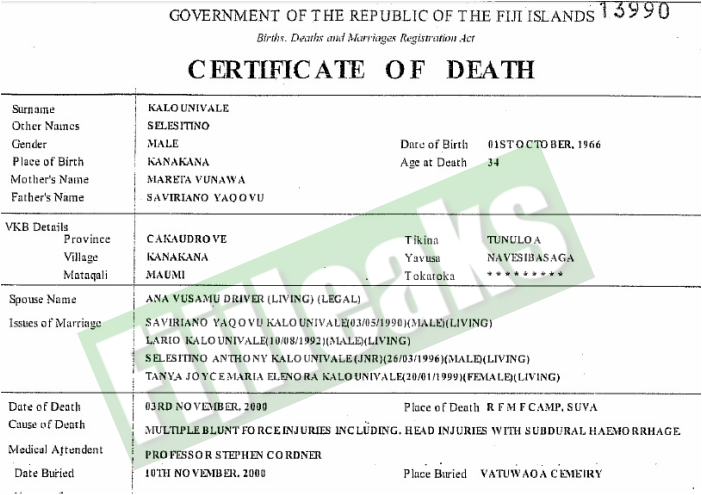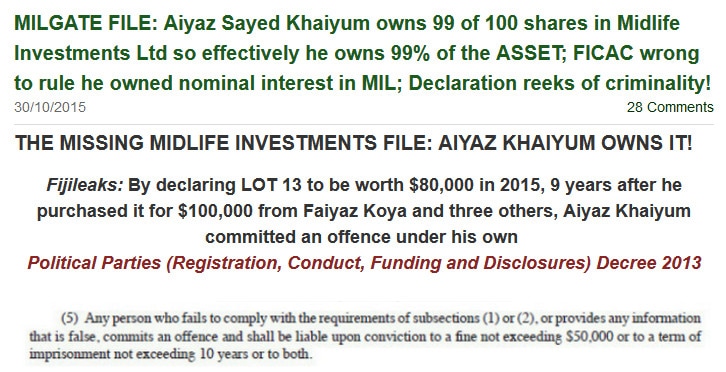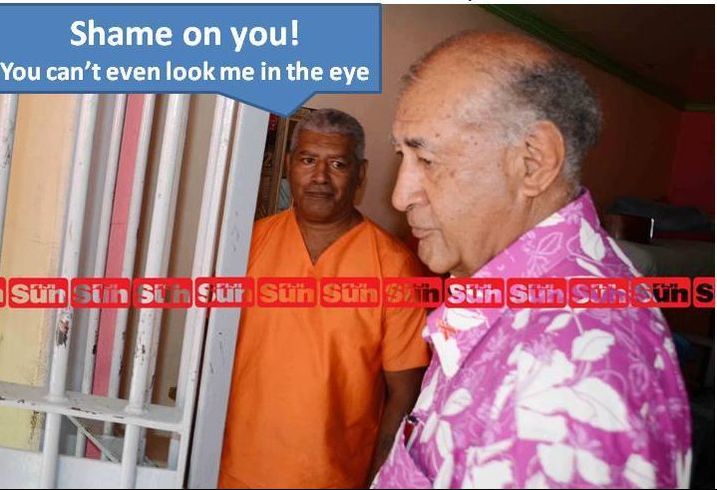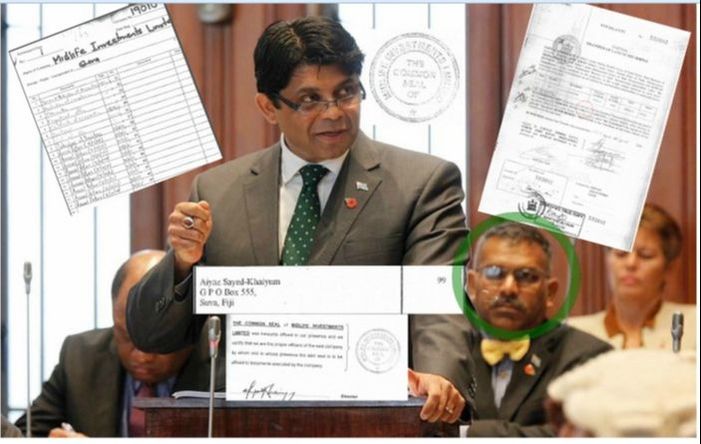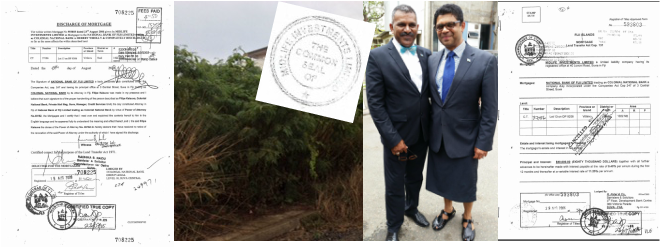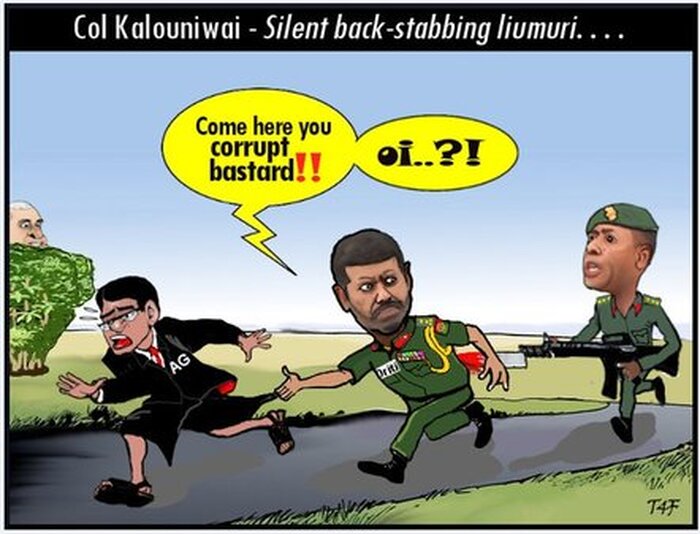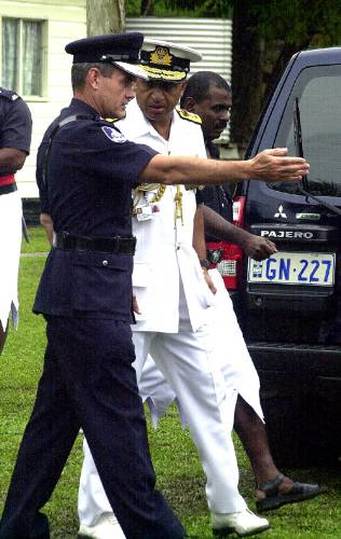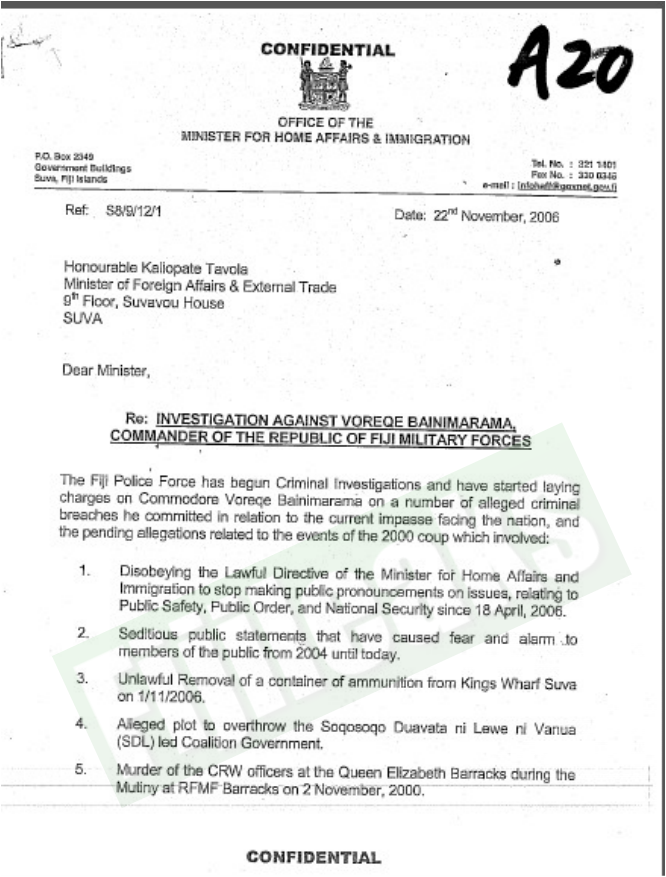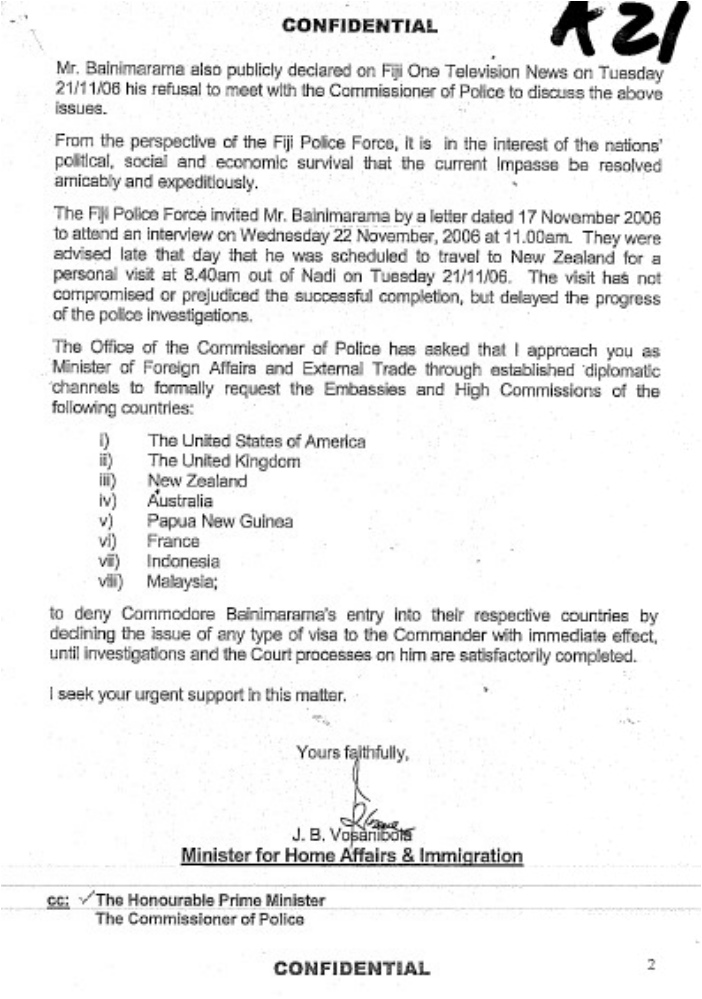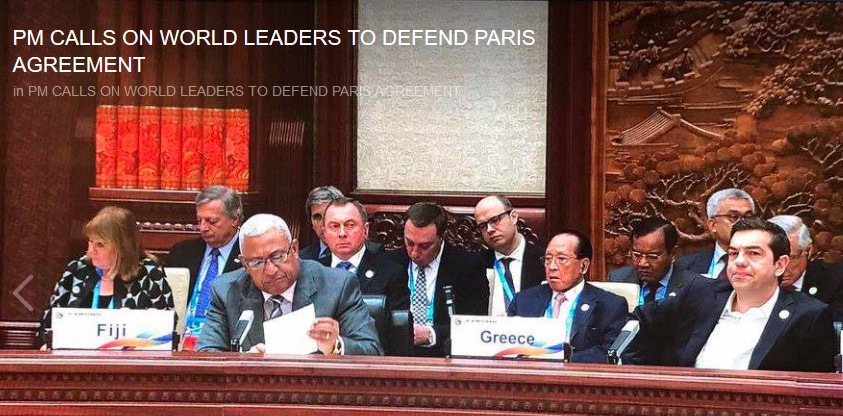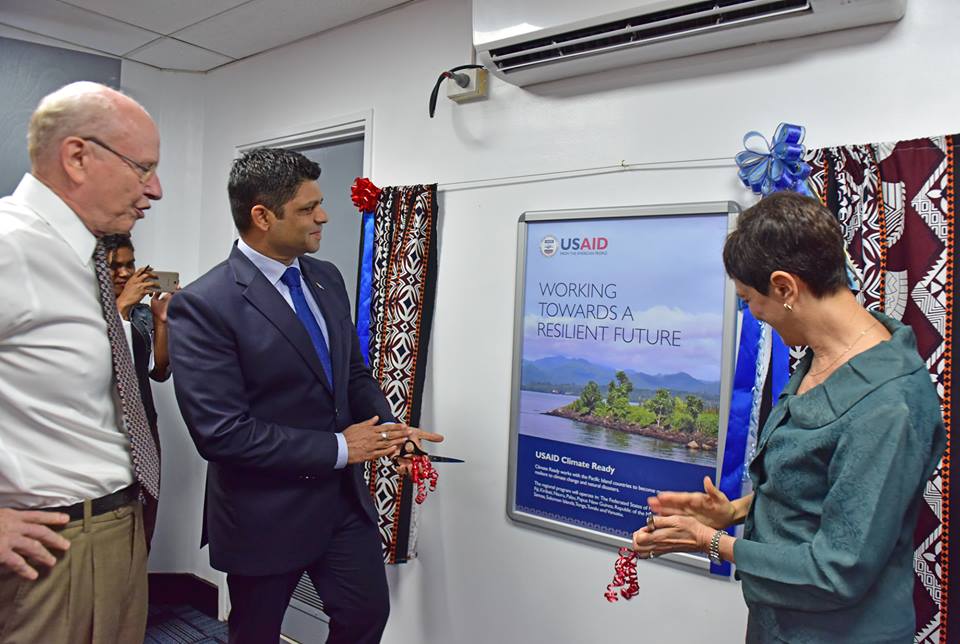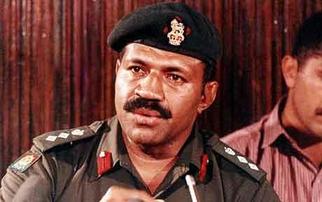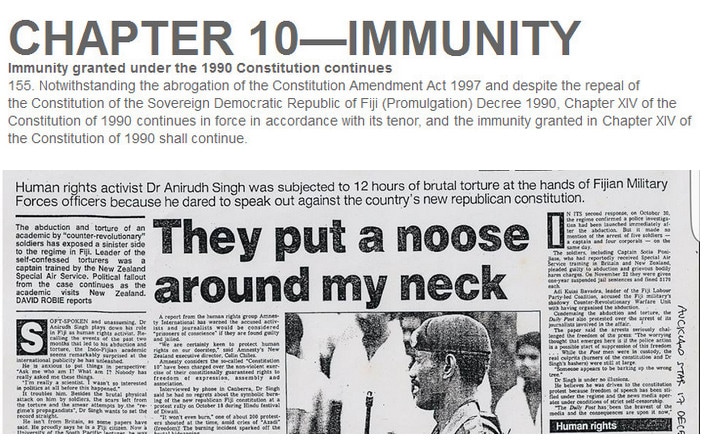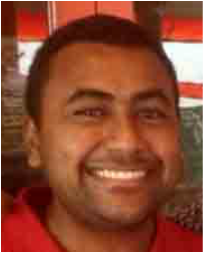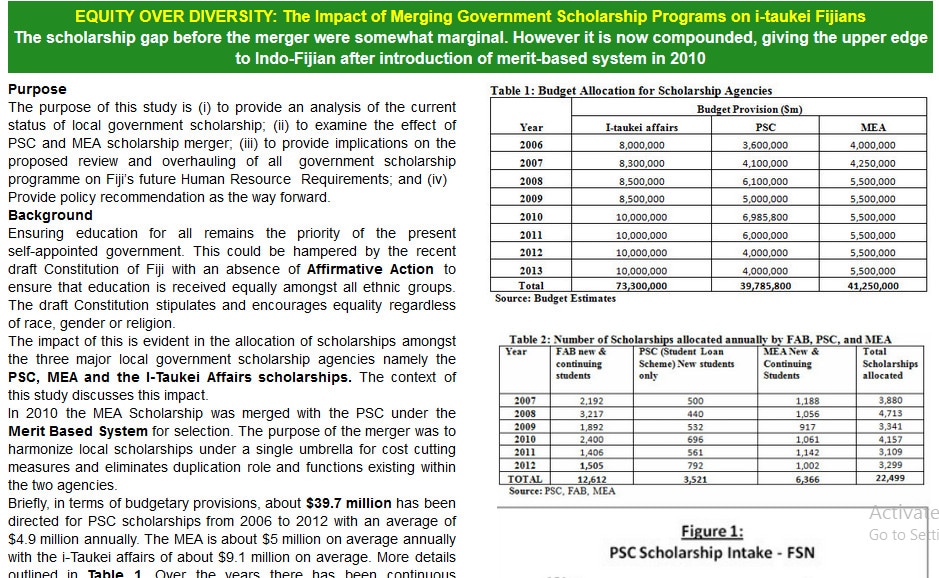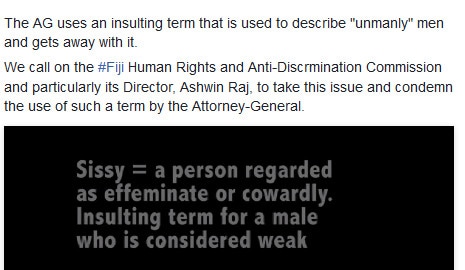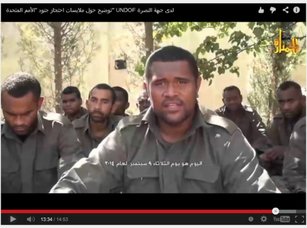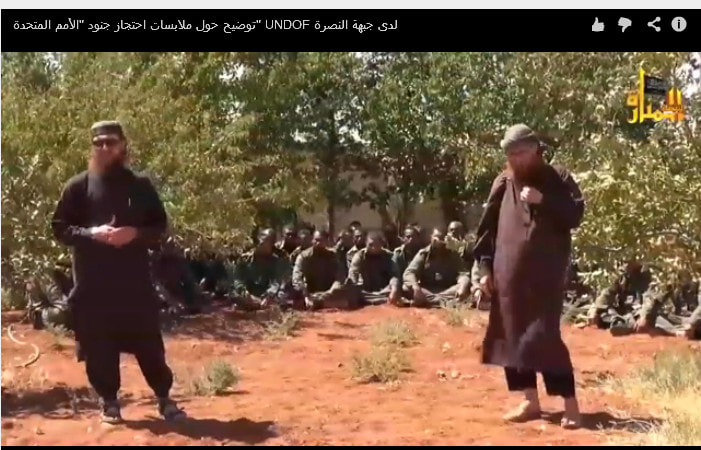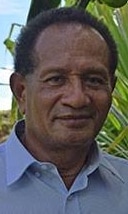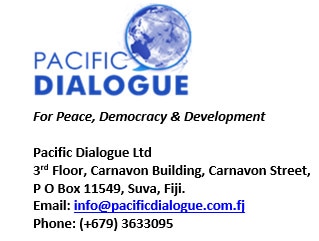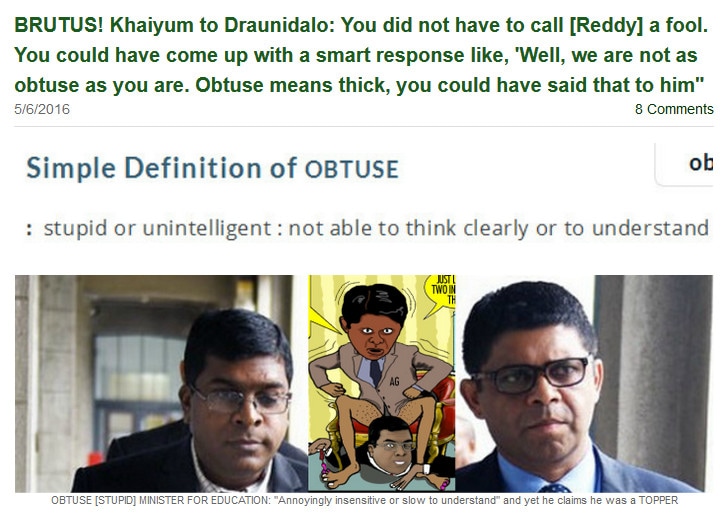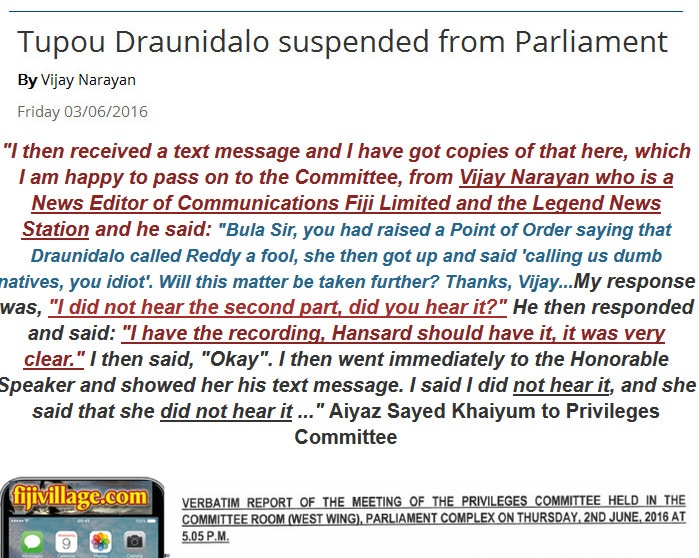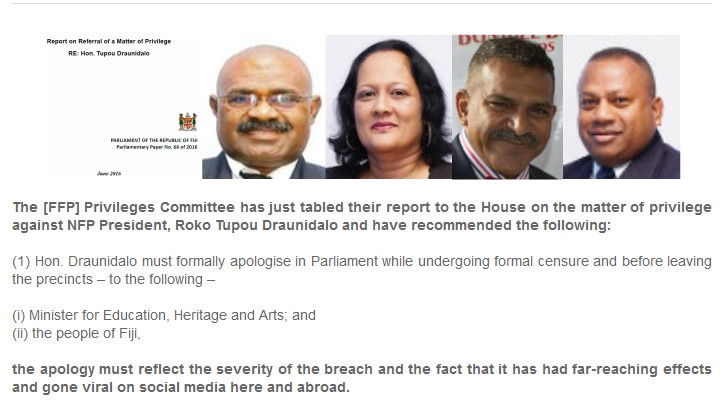Fijileaks: We will reveal more details and documents, and call on Aiyaz Khaiyum to explain the holiday he took to Sri Lanka? Who paid for the trip? This is what happens when coupists and their supporters take over Fiji. Now, the former master coupster Sitiveni Rabuka is vying to take a second dip at the coffers. Despite the exhortation of his supporters, the election should not be about Indigenous Rights versus Others. The electorate should make it clear that we don't want former and present coupist crooks to run Fiji. We will reveal Rabuka's financial crimes closer to the next election
Cry the Beloved Country
"That all payments due to CINEC shall be paid directly either through the Fijian Government Consolidated Fund or by FNU"
Why are the payments made through Attorney-General's Chambers?
THE PARTIES HAVE THEREFORE AGREED AS FOLLOWS:
4.1Provide relevant finances and the necessary infrastructure;
4.2 Market to encourage the maximum number of students to be sent for training;
4.3 Market relevant courses in the Maritime field to all stakeholders in the Maritime sector in Fiji and in the region;
4.4 In conjunction with FNU, lobby for the employment and placement on ships for Trainers trained at FMS;
4.5 Sponsor the visit to FMS by CINEC Directors for Board Management Meeting;
4.6 Play a facilitating role to endure that the obligation under this Agreement and the objectives of the Fijian Government are fulfilled.
4.7 Provide accommodation and transport facility within Fiji to the Director-in-Charge CEO of FMS appointed by CINEC; and,
4.8 Cost for Resources Persons whether local or foreign to be borne by FMS.
5.0 OBLIGATION OF CINEC
CINEC Shall:
5.1 Appoint a Director-in-charge/CEO to head the management of FMS;
5.2 Provide all course material for IMO related courses;
Maintaining the international standards and IMO requirements.
5.5 Design and introduce programmes required for class II and class I qualification in
both the Navigation and Engineering disciplines by the end of 5 years while
maintaining the international standards and IMO requirements;
5.6 Identify and source the required lectures for all programs at FMS;
5.7 Train lecturers and trainers from Fiji, to conduct programmes at FMS. If required, train FMS lectures and Trainers at CINEC. The course fee of such training of Trainers program/s to be borne by CINEC;
At FMS;
5.11 Elevate FMS as a premier maritime training facility in the region; and’
5.12 Assist the Fijian Government to obtain IMO White List status.
6.0 RENUMERATION AND EXPENSES
6.1 CINEC shall be remunerated during the period of the MoA
- OBLIGATION OF THE FIJIAN GOVERNMENT
- The successful implementation between CINEC and FNU; and
- That all payments due to CINEC shall be paid directly either through the Fijian Government Consolidated Fund or by FNU.
- OBLIGATION OF FNU
4.1Provide relevant finances and the necessary infrastructure;
4.2 Market to encourage the maximum number of students to be sent for training;
4.3 Market relevant courses in the Maritime field to all stakeholders in the Maritime sector in Fiji and in the region;
4.4 In conjunction with FNU, lobby for the employment and placement on ships for Trainers trained at FMS;
4.5 Sponsor the visit to FMS by CINEC Directors for Board Management Meeting;
4.6 Play a facilitating role to endure that the obligation under this Agreement and the objectives of the Fijian Government are fulfilled.
4.7 Provide accommodation and transport facility within Fiji to the Director-in-Charge CEO of FMS appointed by CINEC; and,
4.8 Cost for Resources Persons whether local or foreign to be borne by FMS.
5.0 OBLIGATION OF CINEC
CINEC Shall:
5.1 Appoint a Director-in-charge/CEO to head the management of FMS;
5.2 Provide all course material for IMO related courses;
- Identify and design programmes for various organization sectors including Fiji Ports Corporation Limited, Tourism Sectors, and the Navy;
- Design and introduce programmes required for class III qualification in both the
Maintaining the international standards and IMO requirements.
5.5 Design and introduce programmes required for class II and class I qualification in
both the Navigation and Engineering disciplines by the end of 5 years while
maintaining the international standards and IMO requirements;
5.6 Identify and source the required lectures for all programs at FMS;
5.7 Train lecturers and trainers from Fiji, to conduct programmes at FMS. If required, train FMS lectures and Trainers at CINEC. The course fee of such training of Trainers program/s to be borne by CINEC;
- To offer high end training programmes at CINEC for Fijian students at the prevailing local fee structure until facilities are upgraded at FMS;
- Introduce the consultants for the Quality Management Systems (QMS) for FMS/ Administrationas required;
At FMS;
5.11 Elevate FMS as a premier maritime training facility in the region; and’
5.12 Assist the Fijian Government to obtain IMO White List status.
6.0 RENUMERATION AND EXPENSES
6.1 CINEC shall be remunerated during the period of the MoA
HON PM BAINIMARAMA SPEECH AT THE REBRANDING OF MARITIME SCHOOL
3/9/2015
The Attorney-General and Minister for Education;
Your Excellencies, Members of the Diplomatic Corp;
Captain Ajith Peiris President of CINEC Maritime Campus;
The Acting Vice-Chancellor of the Fiji National University;
The Management and Staff of the Fiji Maritime Academy;
Distinguished Guests;
My Fellow Fijians.
Bula vinaka and a very good morning to you all.
I’m delighted to be here to celebrate a milestone in Fiji’s development as a maritime nation – the official opening of the new Fiji Maritime Academy.
This is a major leap forward for our nation in the training of those men and women who we rely on to carry us over the seas and to carry the cargoes on which our economy and wellbeing depends. And also for the training of those men and women in the Fijian Navy who patrol our waters and keep us safe.
Men and women have always gone down to the sea in ships – to quote that memorable line from the Bible. But they will never again go down from Fiji with more training than they will receive from this institution – one of the most important ever to be established in our island nation.
As many of you know, I am very proud to have done my own training as a seafarer at this institute which was then the FIT School of Maritime Studies in 1981. So it’s a special pleasure for me today to see it attain new heights as a training facility that we could have never imagined in my day.
I was given a tour of the fantastic computerised training simulators that replicate actual conditions on the bridge of a ship and in the engine room. It is deeply impressive – not only from a technological standpoint – but the fact that Fiji now has this technology for the first time.
With the help of our Sri Lankan friends from CINEC – the Colombo International Nautical and Engineering College
– we have built a cutting-edge, world-class facility here in Fiji that is easily the best in the Pacific.
It establishes Fiji as the prime maritime training nation in the region. It establishes a centre of excellence that will reap huge dividends for ourselves and the other island nations. And it establishes a platform for the career development of tens of thousands of our young people, who will pursue maritime careers here in the years and decades to come.
I’m delighted that in this facility and in several other areas of our national life, we have forged close links with Sri Lanka.
The Sri Lankan judiciary came to our aid when some of our larger neighbours deprived us of the judges and magistrates we needed to keep our justice system going.
And it is the Aitken Spence company of Sri Lanka that has transformed the performance of our ports in Suva and Lautoka, has ended the delays that cost our importers and exporters dearly. This is spearheading Fiji’s export performance and removing costs from imported items and transforming our economy in the process.
And now, CINEC, the largest private higher-education organisation in Sri Lanka, has joined hands with Fiji to produce a new generation of seafarers – well educated, disciplined, experts in seamanship and with their eyes on a horizon that promises great things for them as individuals and for us all as a nation.
The partnership between CINEC, the FNU, my Government and other stakeholders is a wonderful example of the public and private sectors getting together to achieve world’s best practice.
So the Fiji Maritime Academy also becomes a symbol of what we can all achieve if the various sectors in the economy can work cooperatively together. And we tap the high level of expertise that a country like Sri Lanka can offer us as partners in developing Fiji.
We have rebranded this institution to act as that symbol. The School of Maritime Studies becomes the Fiji Maritime Academy – managed by CINEC, under the banner of FNU. And we have also given it a new symbol, which proudly reflects its new identity.
Symbols matter. This one and all others, not least our national flag, which as you all know, we are currently in the process of redesigning to embrace genuinely Fijian symbols we can all relate to.
I must say that I was surprised when I returned from Geneva on Friday to find that the Opposition is boycotting the national panel of citizens we are setting up to choose a new design for our flag from the ideas being put forward by ordinary Fijians.
I frankly don’t understand why the Opposition wants us all to continue to honour the symbols of the colonial power that has been gone from Fiji for 45 years.
Fiji is a young nation in every sense. But most importantly because most of our population are young people who have no recollection of colonial times beyond what they read in the history books. They deserve to honour symbols we can all relate to as Fijians – genuinely, authentically and proudly Fijian.
On this note I urge the Fiji Maritime Academy staff and students to also enter the competition in the design of our new Fijian flag.
I’m sure you will all agree that the new symbol of the Fiji Maritime Academy – its new flag – is one that everyone who passes through this institution in the months and years to come will honour and hold in the highest respect.
My Government is certainly proud to be part of this wonderful venture, which included providing $2 million to fund the bridge and engine room simulators that are transforming the learning experience of every cadet.
And Fiji as a whole is proud that already, our maritime academy has received certification from the ISO – the InternationalOrganization for Standardization– which tells the region and the world that this is a place of excellence and worthy of international respect.
To all those who have worked so hard in the lead-up to this wonderful day, I say vinaka vakalevu on behalf of our nation and maritime communities across the Pacific – for whom this institution means so much.
It is a proud day for Fiji. A proud day for FNU. A proud day for CINEC. A proud day for all of you who will either teach here or have the privilege of undergoing courses here. And it is a proud day for me personally, as a member of the alumni of the old School of Maritime Studies, to have the privilege to formally launch the new Fiji Maritime Academy.
Every Fijian wishes you fair winds and a following sea.
Vinaka vakalevu. Thank you.
3/9/2015
The Attorney-General and Minister for Education;
Your Excellencies, Members of the Diplomatic Corp;
Captain Ajith Peiris President of CINEC Maritime Campus;
The Acting Vice-Chancellor of the Fiji National University;
The Management and Staff of the Fiji Maritime Academy;
Distinguished Guests;
My Fellow Fijians.
Bula vinaka and a very good morning to you all.
I’m delighted to be here to celebrate a milestone in Fiji’s development as a maritime nation – the official opening of the new Fiji Maritime Academy.
This is a major leap forward for our nation in the training of those men and women who we rely on to carry us over the seas and to carry the cargoes on which our economy and wellbeing depends. And also for the training of those men and women in the Fijian Navy who patrol our waters and keep us safe.
Men and women have always gone down to the sea in ships – to quote that memorable line from the Bible. But they will never again go down from Fiji with more training than they will receive from this institution – one of the most important ever to be established in our island nation.
As many of you know, I am very proud to have done my own training as a seafarer at this institute which was then the FIT School of Maritime Studies in 1981. So it’s a special pleasure for me today to see it attain new heights as a training facility that we could have never imagined in my day.
I was given a tour of the fantastic computerised training simulators that replicate actual conditions on the bridge of a ship and in the engine room. It is deeply impressive – not only from a technological standpoint – but the fact that Fiji now has this technology for the first time.
With the help of our Sri Lankan friends from CINEC – the Colombo International Nautical and Engineering College
– we have built a cutting-edge, world-class facility here in Fiji that is easily the best in the Pacific.
It establishes Fiji as the prime maritime training nation in the region. It establishes a centre of excellence that will reap huge dividends for ourselves and the other island nations. And it establishes a platform for the career development of tens of thousands of our young people, who will pursue maritime careers here in the years and decades to come.
I’m delighted that in this facility and in several other areas of our national life, we have forged close links with Sri Lanka.
The Sri Lankan judiciary came to our aid when some of our larger neighbours deprived us of the judges and magistrates we needed to keep our justice system going.
And it is the Aitken Spence company of Sri Lanka that has transformed the performance of our ports in Suva and Lautoka, has ended the delays that cost our importers and exporters dearly. This is spearheading Fiji’s export performance and removing costs from imported items and transforming our economy in the process.
And now, CINEC, the largest private higher-education organisation in Sri Lanka, has joined hands with Fiji to produce a new generation of seafarers – well educated, disciplined, experts in seamanship and with their eyes on a horizon that promises great things for them as individuals and for us all as a nation.
The partnership between CINEC, the FNU, my Government and other stakeholders is a wonderful example of the public and private sectors getting together to achieve world’s best practice.
So the Fiji Maritime Academy also becomes a symbol of what we can all achieve if the various sectors in the economy can work cooperatively together. And we tap the high level of expertise that a country like Sri Lanka can offer us as partners in developing Fiji.
We have rebranded this institution to act as that symbol. The School of Maritime Studies becomes the Fiji Maritime Academy – managed by CINEC, under the banner of FNU. And we have also given it a new symbol, which proudly reflects its new identity.
Symbols matter. This one and all others, not least our national flag, which as you all know, we are currently in the process of redesigning to embrace genuinely Fijian symbols we can all relate to.
I must say that I was surprised when I returned from Geneva on Friday to find that the Opposition is boycotting the national panel of citizens we are setting up to choose a new design for our flag from the ideas being put forward by ordinary Fijians.
I frankly don’t understand why the Opposition wants us all to continue to honour the symbols of the colonial power that has been gone from Fiji for 45 years.
Fiji is a young nation in every sense. But most importantly because most of our population are young people who have no recollection of colonial times beyond what they read in the history books. They deserve to honour symbols we can all relate to as Fijians – genuinely, authentically and proudly Fijian.
On this note I urge the Fiji Maritime Academy staff and students to also enter the competition in the design of our new Fijian flag.
I’m sure you will all agree that the new symbol of the Fiji Maritime Academy – its new flag – is one that everyone who passes through this institution in the months and years to come will honour and hold in the highest respect.
My Government is certainly proud to be part of this wonderful venture, which included providing $2 million to fund the bridge and engine room simulators that are transforming the learning experience of every cadet.
And Fiji as a whole is proud that already, our maritime academy has received certification from the ISO – the InternationalOrganization for Standardization– which tells the region and the world that this is a place of excellence and worthy of international respect.
To all those who have worked so hard in the lead-up to this wonderful day, I say vinaka vakalevu on behalf of our nation and maritime communities across the Pacific – for whom this institution means so much.
It is a proud day for Fiji. A proud day for FNU. A proud day for CINEC. A proud day for all of you who will either teach here or have the privilege of undergoing courses here. And it is a proud day for me personally, as a member of the alumni of the old School of Maritime Studies, to have the privilege to formally launch the new Fiji Maritime Academy.
Every Fijian wishes you fair winds and a following sea.
Vinaka vakalevu. Thank you.
